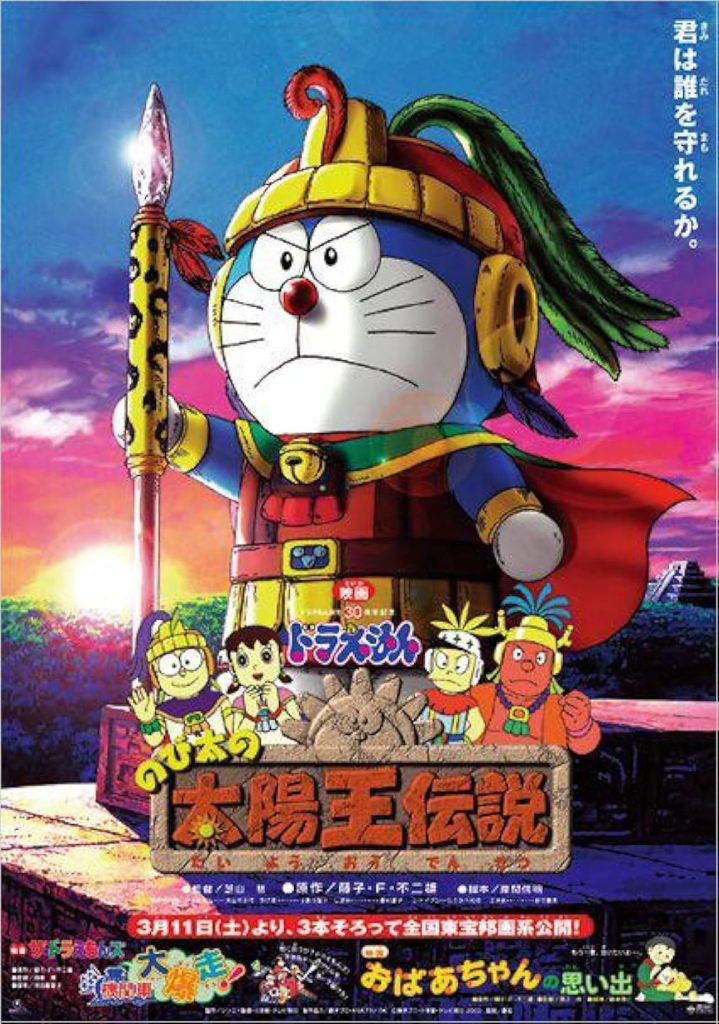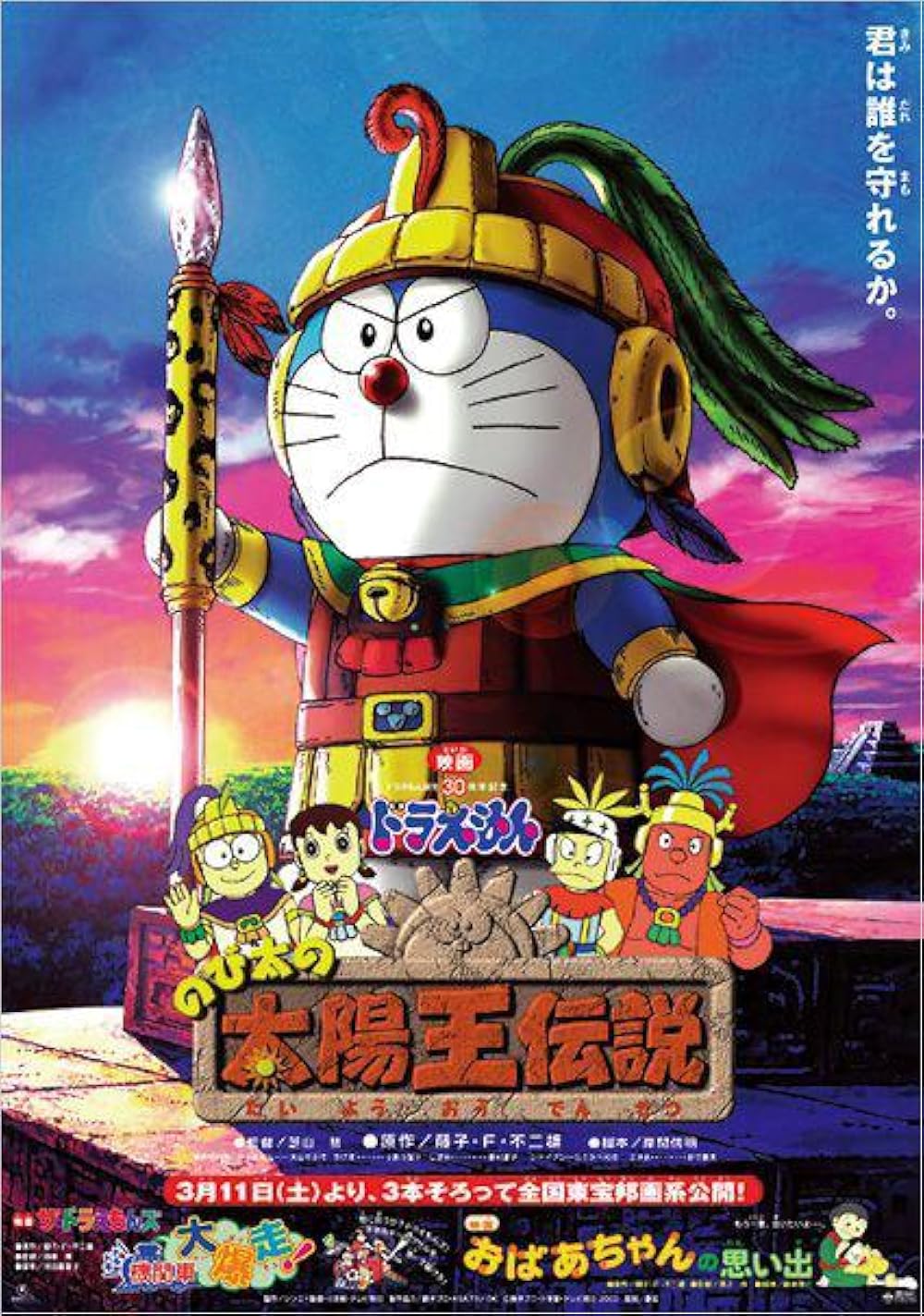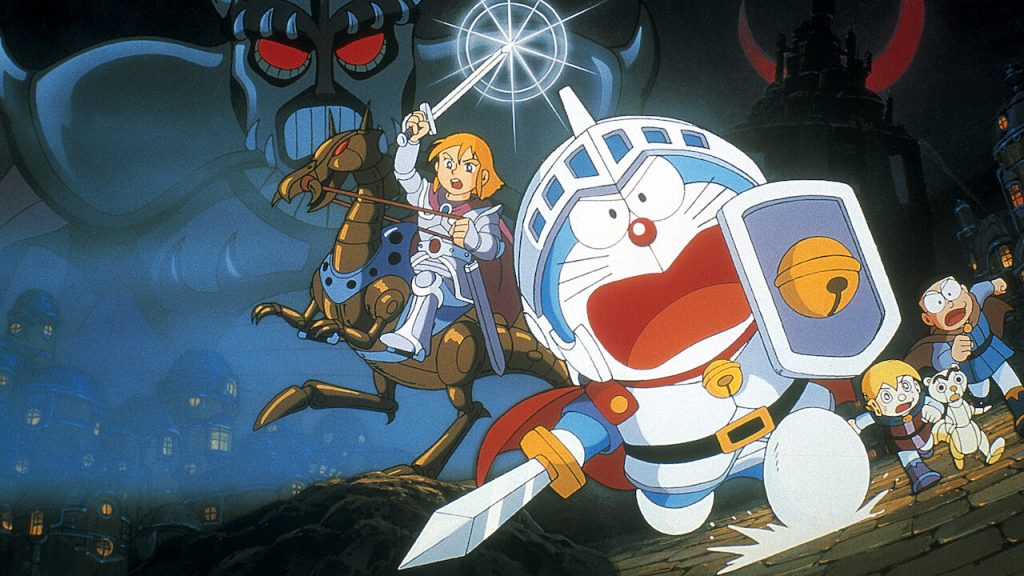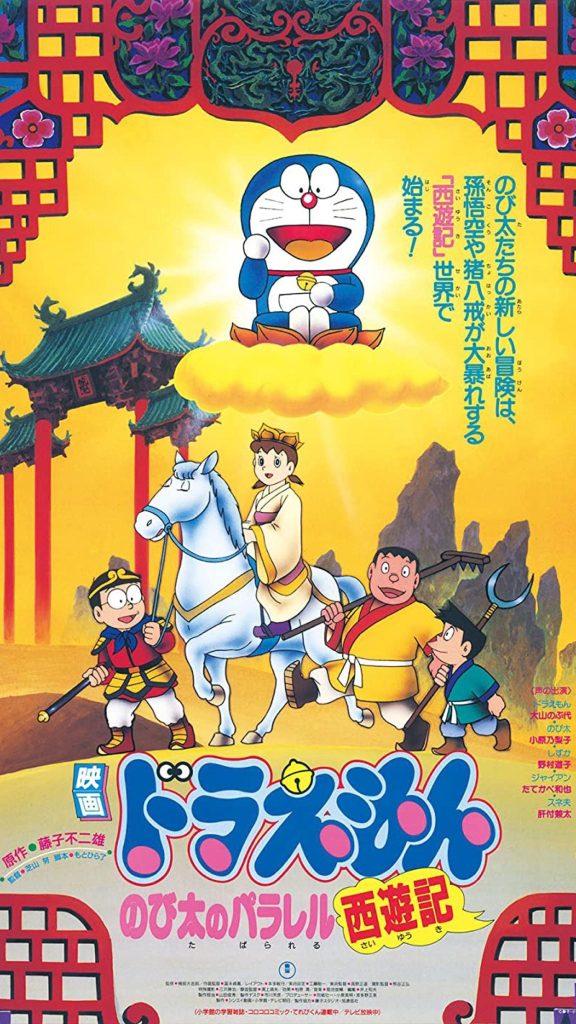
Title: Doraemon: Nobita and the Legend of the Sun King
Original Japanese Title: ドラえもん のび太の太陽王伝説 (Doraemon: Nobita no Taiyōō Densetsu)
Release Date: March 4, 2000 (Japan)
Runtime: 93 minutes
Country: Japan
Language: Japanese
Director: Tsutomu Shibayama
Screenplay: Nobuaki Kishima
Based on: “Daichōhen Doraemon: Nobita no Taiyōō Densetsu” by Fujiko F. Fujio
Music: Katsumi Horii
Cinematography: Toshiyuki Umeda
Editing: Hajime Okayasu
Production Companies: Shin-Ei Animation, Asatsu
Distributor: Toho
Box Office Gross: ¥3.42 billion (approximately $32.7 million)
Genres: Animation, Adventure, Comedy, Family, Fantasy, Sci-Fi
International Titles:
- “Doraemon and the Empire of the Sun”
- “Doraemon: Nobita and the Legend of the Sun King”
Plot Summary:
In this 21st installment of the Doraemon film series, the story unfolds in the ancient kingdom of Mayana, where a malevolent sorceress named Ledina has cast a spell, plunging the queen into an eternal slumber and bringing misfortune to the land. The queen’s son, Prince Tio, now rules in her absence
Back in modern-day Japan, Nobita and his friends are preparing for their school play, “Snow White,” using Doraemon’s Universal Stage Set. However, a mishap with the gadget creates an interdimensional portal, connecting their world to Mayana. Through this portal, Nobita encounters Prince Tio, who bears a striking resemblance to him. Intrigued by each other’s lives, they decide to switch places temporarily.
As Nobita navigates the challenges of royal life in Mayana, he discovers the kingdom’s plight under Ledina’s curse. With the help of Doraemon’s gadgets and his friends, Nobita endeavors to lift the curse and restore peace to Mayana. Meanwhile, Prince Tio experiences life in modern Japan, leading to humorous and enlightening situations.
Themes and Inspirations:
The narrative draws inspiration from classic tales such as Mark Twain’s “The Prince and the Pauper” and the Brothers Grimm’s “Snow White,” exploring themes of identity, responsibility, and the transformative power of empathy.
Box Office Performance:
The film was a commercial success, grossing approximately ¥3.42 billion (around $32.7 million), making it the highest-grossing Doraemon film of the original series at the time. It also marked the 30th anniversary of the Doraemon
Critical Reception:
While specific critical reviews are limited, the film was well-received by audiences for its engaging storyline, character development, and the seamless integration of fantasy elements with moral lessons.
Legacy:
“Doraemon: Nobita and the Legend of the Sun King” stands as a significant entry in the Doraemon filmography, celebrated for its rich storytelling and the exploration of timeless themes. It continues to be cherished by fans of the series and serves as a testament to the enduring appeal of Doraemon’s adventures.



